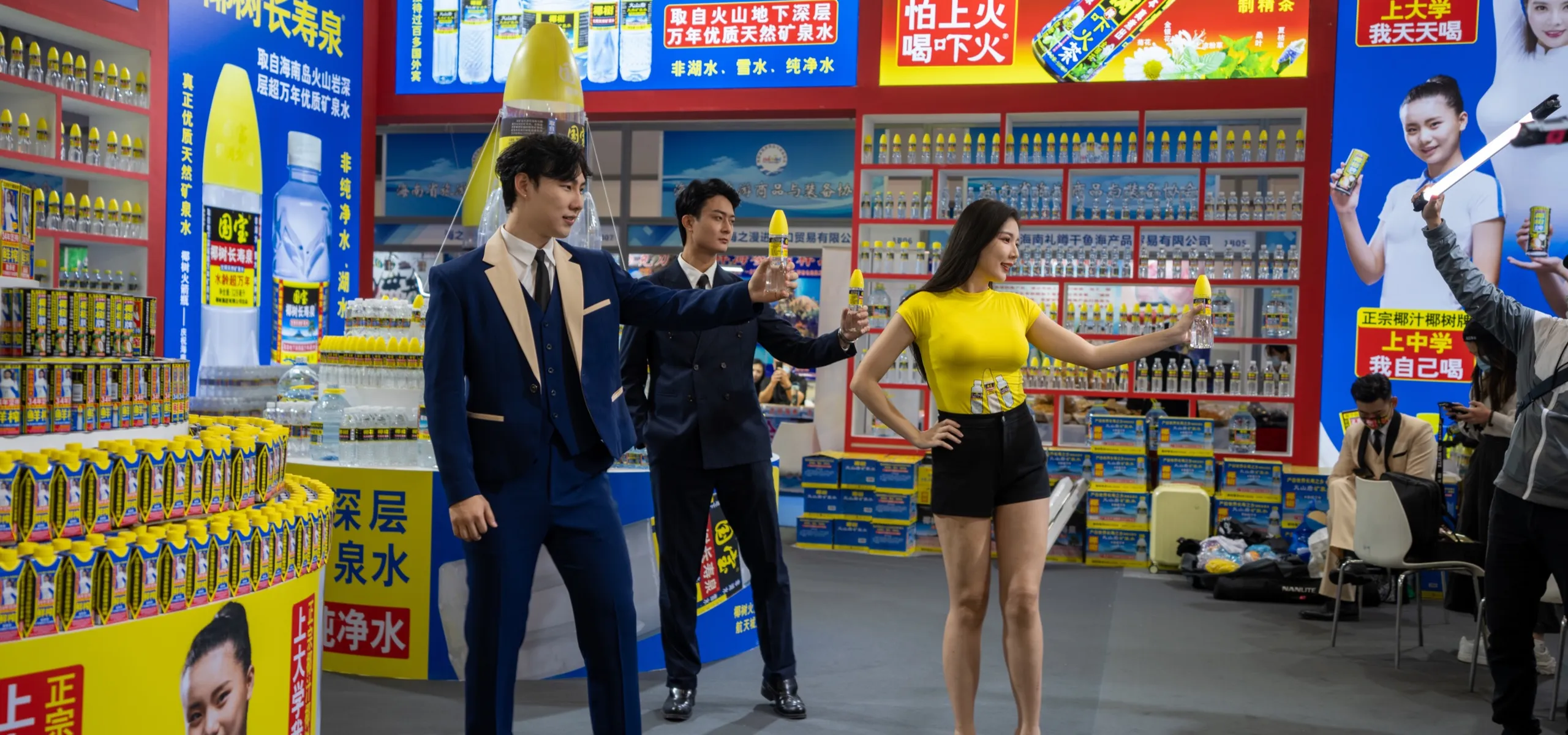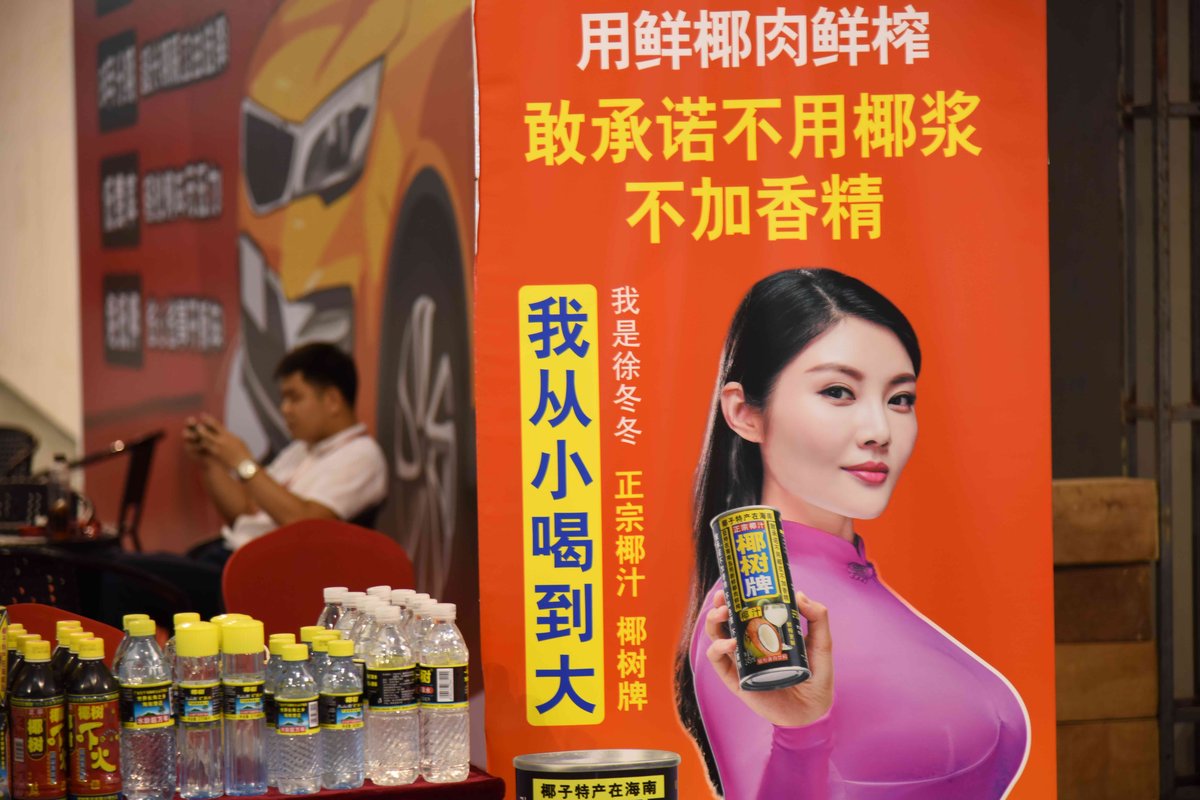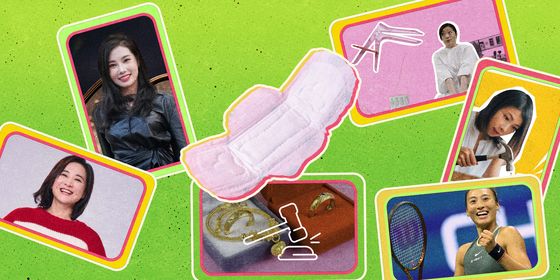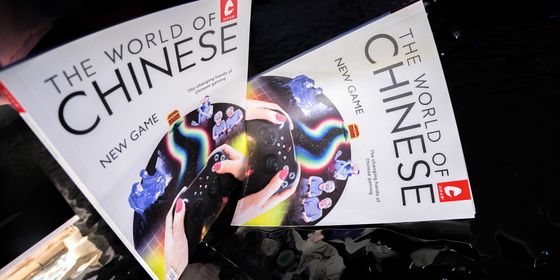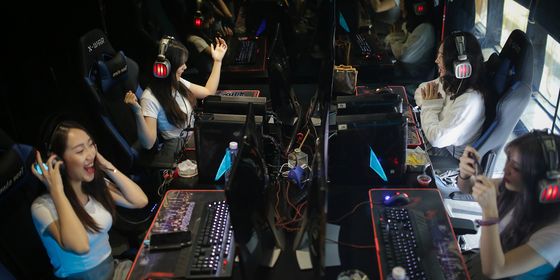A collagen drink becomes the latest product in China to be slammed for gender discrimination in advertising
It’s never been easy to escape stereotyping for female PhD-holders in China, but a recent advertisement for a collagen drink has made it harder. Cosmetics brand Five Doctors is being investigated by Beijing’s commercial regulators for false advertising and “vulgar” content in a series of ads that landed among the top trending topics on Weibo for disrespecting women.
Featuring slogans like “I will be a year older soon, so I’ll drink this!” and “You all forced me to drink this!” shouted by women with fierce expressions on their face, the ads are accused of peddling anxiety about women’s age and appearance, as well as reinforcing negative stereotypes about female PhD holders. Associated with the concept of “leftover women”—who are supposedly too old or too educated for marriage—female PhDs have been demeaned as the “third gender” in China: seen as frumpy, unfeminine, and undesirable to men.
But this is not the first time an advertising campaign in China came under scrutiny for sexist and misogynistic elements. On billboards, inside elevators, and household TVs, numerous companies have put the “male gaze” on women’s appearance, age, role in the household and marriage, and societal value in order to sell products, though not all such ads are “lucky” enough to be brought forth to the public’s attention through trending outrage on social media platforms.
In 2021, cotton products brand PurCotton was reprimanded by state media outlet China News for an ad that depicts an attractive female walking alone at night, with a man dressed in dark clothes following her. When the woman becomes aware of her pursuer, she is visibly frightened, but then she cleans her face with a PurCotton makeup remover wipe and reveals her “true” appearance: older, darker-skinned, with bags under her eyes. The man lets out a loud noise of disgust and leaves her alone.
In May 2022, a marketing poster by Ulike for the Blue Gem electric razor featured the image of an attractive woman with a bare arm and was captioned with the text “Without Blue Gem, I won’t take it off”—presumably referring to hair-removal, but also a double entendre for removal of clothing. In June, 7-Eleven China put up a poster in stores for a collaboration between a tea drink and mini wine, with the text “No chance with her if she’s not drunk.”
Famous coconut drink company Coconut Palm is a repeat offender for both sexist and lewd ads: Its product packaging, billboards, and livestreams frequently feature voluptuous women, and it has claimed since the early 2000s that drinking its coconut beverage could increase a woman’s breast size (and, less frequently, claimed it could improve men’s sexual performance).
The Advertisement Law of the People’s Republic of China does ban gender discriminatory content, but a 2020 article by the non-profit organization Institute for Security & Development Policy draws attention on how “relevant laws and regulations have yet to define the behaviors or content that can be discriminatory,” and this ambiguity can make the law more difficult to enforce.
“In the year 2022, it’s hard to imagine that ads like these still exist,” wrote digital media outlet iiiHer in a takedown of misogynistic ads last year. Putting out the question of why marketing teams would believe ads that “insult and burden women” would be successful, even for products meant for women. The writer concludes, “it’s because there are still some women who agree and advocate this kind of societal value.”
The article goes on to highlight several examples of how differently society judges the experiences of men compared to women, such as the praise boys get for gaining muscle and height in puberty versus the shame women receive for menstruation, or how men and women are judged differently for cheating on their partners. “For the same issue, women are to feel insecure, and men are to feel confident,” the article states, concluding that it is this insecurity that ads appeal to in order to get women to buy the product and redeem their value in society’s eyes.
Some local authorities are starting to take action. In 2021, after PurCotton’s controversial ad, Shenzhen became the first city in China to release an official guidebook on gender equality in advertisement, focusing especially on how one can identify and prevent gender discrimination in ads. It includes guidelines for regulating ads with sexist elements, examples of ads that would be considered discriminatory, phone numbers to call to report them, and stipulations that advertising agencies and companies are responsible for their ad content and should offer regular training to educate their employees on the matter. The guidebook received major praise from netizens and media, with some saying that they hope to see related laws in place as a next step.





